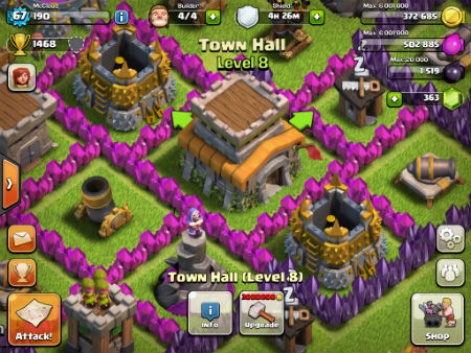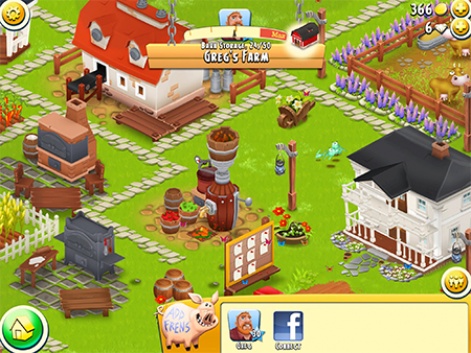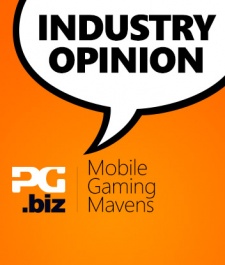Last week saw Puzzle & Dragons developer GungHo team up with SoftBank to buy a 51 percent stake in Supercell.
It cost the two firms $1.5 billion, valuing the Finnish developer valued at around the $3 billion mark as a result a considerable rise on previous estimates.
So, we asked the Mavens:
Does the amount of money involved suggest this is something of a bubble, or does this actively reflect Supercell's value?
Is this a wise move for GungHo, can we expect those at the top of Supercell to slink off in the coming months and years, or is this as Supercell CEO Paananen suggests just a way of accelerating the company's global growth?
In short: Is GungHo and SoftBank's Supercell move a super one?
It is a huge valuation for sure. However, next to Zynga it doesn't look like it's too much at all. Zynga is currently valued at $2.88 billion, Supercell at $3 billion.
I am not a financial analyst and no doubt there are some interesting ratios across the two companies to look at more closely, but the comparison is interesting as I think it endorses one thing clearly - there is a lot of money to be made in mobile and social games if you do it right.
Supercell has definitely done it right, so far if the numbers of $2.4 million per day are to be believed, and the biggest question hanging over the firm will be how successfully it can create new titles.
It has clearly demonstrated that it understand how to create highly social free-to-play games across mobile devices. It also seem to have a handle on in-game monetisation better than anyone right now.
One of the points I made last week was that current user volumes - currently in the hundreds of millions for the leading games - are likely to continue growing on the back of increased smartphone and tablet sales worldwide. If companies like Supercell can repetitively re-create the same successful titles you could argue the valuation is cheap.
All eyes will be on Supercell's next title. I worry that it will go down the Zynga route and create a new Ville series out of Clash of Clans. I hope not, but with valuations like this and the need to justify them it's hard to resist.
It certainly should be motivating for indies though. It's possible to make more money today in games than ever before and, while I appreciate this is NOT the primary motivation for most games developers, it must certainly help knowing it's possible.
Excellent insight John.
It's pretty much the World of Warcraft scenario on mobile. How long can it sustain the community and core gameplay that the current users expect, while drawing in new users who have never tried the game or already have and decided it was not for them.
I personally tried it long ago, didn't care for it. However I would give it another chance if a friend asked me to.
Supercell doesn't necessarily need to build new games. The format and mechanics of Clash of Clans allows for a very long ended experience built around community. Keep the hardcore community happy and everyone stays happy thriving to be part of that niche.
I can't believe with the way Supercell makes games and the revenues it generates that it needs money to grow. This looks like an OpenFeint-GREE, ngmoco-DeNA or Tencent-Epic sort of deal - a Japanese giant making a move on the West.
The majority control at least gives GungHo dominion over the user base, so whilst on paper the deal looks crazy, consider the user acquisition and the banked cash.
However, I will say very few acquisitions in games work out.

A games programmer before joining Sony’s early PlayStation team in 1994, he then founded developer Pure Entertainment, which IPO’d and launched a free-to-play online gaming service way back in 1999.
He was also a director of pioneering motion gaming startup In2Games, which was sold to a US group in 2008.
Along the way, he’s been a corporate VP, troubleshooter, and non-exec to a variety of companies and investors in and around the games sector.
Harry was European CEO of Marvelous AQL, a Japanese developer and publisher of social, mobile and console games, known for console games like No More Heroes and Harvest Moon, but now highly successful in the free-to-play mobile and web space in Japan and Asia.
Harry is CEO of Magicave.
I think it's a very interesting move.
Of course, the valuations on both companies are arguably over the top, however we now have the number one Japanese and number one western mobile gaming company working together.
From an 'investor story' perspective, that's a great move. No Japanese mobile games company has really profitably cracked the western market on their own.
Clash of Clans
Though the Japanese market us hugely lucrative, it's rather insular nature has meant that a lot of its games don't work outside their native territory - although I think their core gameplay and retention concepts are global.
If the story is now 'this group has huge successes in both Japan and the west', owns the biggest franchises in both and has the expertise to keep on delighting players, the future could be very bright for them, in terms of medium-term investor sentiment at least.
Quite whether the group can replicate its initial successes over and over enough to justify the valuations remains to be seen.

Oscar Clark has been a pioneer in online, mobile, and console social games services since 1998. He is also author of the book, Games As A Service – How Free To Play Design Can Make Better Games.
Supercell has been an incredible success story and, whilst Im sure it will continue to grow from strength to strength, there is always a question about where an additional rate of growth can come when you are at the top like it is.
I was talking to a number of people about this at Games Marketing Europe and Mike Hawkyard made some very interesting points that got me thinking.
Releasing new content from this position can be very costly and there is considerable risk as you have an awful lot to live up to. If you cash out you are free to do it again without the legacy (after whatever lock-ins exist - I dont know but presume there are some).

If you can find new markets (and the necessary expertise) you can maximise the ongoing growth potential.
Harrys point below also resonates with me. There is an east/west divide and it doesnt seem to be about art; but about cultural differences in gameplay. What better way to deal with it but to take two giants from both worlds and bring them together.
Will also makes a great point about how fragile these M&A deals can be in the games industry, look at PlayFish, OpenFeint, OMGPOP, etc. However, I think the balance between these organisations feels a little different than with EA, GREE or Zynnga so maybe this might have a fighting chance.
Either way, it seems to me that this deal offers Supercells team the best of both worlds and Im so glad for Illka and all the rest of the Supercell team congratulations.
I have to agree with Oscar. Supercell parted with 51 percent, but ultimately it is now completely independent.
It the co-operation falls apart, it has enough cash to start over again. Hypercell? Nanocell? Maybe Supercell didn't include the rights to name in the deal, so it could even stay Supercell.
I don't think new games/spinoffs are that much of an issue, either:
Clash of Clans: Titans
Clash of Clans: Imperium America
Clash of Clans: Battle for Rome
Merchandising anyone? I would buy a wind-up tin Warpig with a Viking on it!
[people id="30" name="Kadri Ugand"]
You have all been talking about the structure and value of the deal and the outcomes for the parties in the deal, but how would you comment on the timing in terms of the announcement and its effect on Kings planned IPO?
Seeing a deal this size would be a reassurance to the market that King is also worth what it is asking for, but at the same time how should King value itself now compared to Supercell?
Happy days for the gaming industry either way.[/people]
Just adding in my morning cup of cappuccino full of extemporaneous thoughts on the subject.
Valuation can be different depending on which angle or perspective you are seeing the market from.
Supercell vs. King
To Softbank's eyes ,Supercell is a great fit. It has limited knowledge in the games and content business and very limited knowledge in the western market. Plus, its acquired Sprint as well.
Supercell completes its puzzle and, for Supercell, it'll help it tackle the eastern market.
With all the money in its pockets, Supercell can diversify there business in to all sorts of markets vertical and horizontal It's good fortune that it did the deal with GungHo on cross promotion.
However, is there another reason why SoftBank would value a games company this much? This is what King's valuation will depend on. Everyone knows Candy Crush Saga is very popular and successful, but this doesn't guarantee King's success in with its next game.
It has a strong advantage against most of its competitors - cross promotion, Data analytics, game balance experience, distribution & marketing, sales network, interest from diverse platforms...
However, it has only one successful game, which would be more than enough for me. For an IPO, though, it's a different story. Its valuation will depend on how well it can convince the market that it has the special sauce to make its next game successful.
It's like Psy's follow up to Gangnam Style. Uh what was it again?
Hay Day
SuperCell meets Softbank & GungHo
Softbank is a successful carrier, an operator in Japan - and now going to be one in US. It has diverse channels and a roadmap ahead.
It's still about better call quality and connectivity and coverage, but it's also about content that the users will consume. SoftBank's business is moving from getting a lot of users to getting a lot of users that consume data.
SoftBank will naturally move in to bigger screens, living rooms, cars...in short, it needs to understand how users use content. Make more content. Add context to the content. Link life to content.
And behind Supercell's game, there's a data analysis power house. The studio knows front to back, everything its users are doing. It knows how to acquire better users at a cheaper price. It can check usage and alter the game.
All this can be adapted to Gungho's games as well as Softbank's future contents and services.
I don't think that Supercell's was valuation was high. I think is was on the conservative side. The question was more, who could afford the price tag?
What Supercell did was akin to the running joke "What do do you do after you had a megahit"?
Answer: Shut the company down.
Well, it didn't shut it down, but it's in the same position as if it had. - $240 million richer per founder.

Since founding Tag Games in 2006 Paul has built the studio from humble beginnings to become one of the most respected and successful mobile and handheld developers in Europe.
He began a long, and some might say, distinguished, games industry career at legendary developer DMA Design, playing a key role in the development of the GTA series
As has already been noted research shows that around 70 percent of mergers and acquisitions results in no tangible value add for either party over the long term.
In mobile gaming weve certainly see our fair share of failures in this regard, however this deal has the potential to buck the trend.
Id also agree that the valuation, based such as it is on the success of two products, appears on low side. Unlike Zyngas acquisition of OMGPOP, Supercell has strong foundations and the capability to follow up on Hay Day and Clash of Clans with future successes if it needs.
It is no flash in the pan and, given that both Hay Day and Clash of Clans are run as services rather than products, there is still a huge amount of long tail life left in its games yet.
Clearly there is a cultural and content fit between Supercell and Gungho and the teams already have a track record of working together, so in many senses it should be a case of business as usual. I doubt well see too much immediate change in either party's strategy.
To merge resources and centralise seems completely at odds with both companies ethos, however the benefits to both in terms of cross marketing and bulk user acquisition are large. We know that Supercell and Gungho can make great mobile games - they now have the bulk buying power to get the lowest UA costs as well. A formidable combination.

The one red flag? Having cashed out so successfully it remains to be seen whether the founders will retain the hunger to drive forward with such continued vigour. I hope so, there is so much more potential still left in the mobile games market!
Its also worth mentioning that this outcome is more music to Apples ears. Throughout the short history of iOS gaming there have been stunning breakout success stories from games like iShoot and Fieldrunners early on, through Angry Birds, Fruit Ninja, Temple Run and now Clash of Clans.
Each of these rags to riches stories captures the attention of developers and seduces them to iOS with the promise of streets paved with gold.
We know of course that the highly successful 1 percent take the majority of the revenue and the rest fight over the scraps and struggle to survive, but as long as someone, somewhere, is winning big the developers, games and apps will keep flowing onto the platform and making it their priority.

John is co-founder of PR and marketing company Big Ideas Machine. Also an all-round nice guy...
As a couple of people have already said, the numbers make sense and, based on a company with revenues reported to be in the region of $1 million a day, the revenue multiples are by no means outrageous.
And there is certainly scope to expand the current games, without considering what else my be in the Supercell pipeline.
However, my gut feeling is that I'm a bit uneasy with the scale of the deal and do wonder if such a colossal value can be realised.
Back in 2004, the acquisition of Jamdat by EA was then the biggest deal in mobile - and even then a big deal when compared to the traditional games industry. You could argue that the only real value in that deal was the Tetris license, which I believe reverts to the owner after a 15 year term - so not too far off .
The rest of the deal acquired some pretty poor games and a dev team which no doubt scattered to the four winds.
Then, EA repeated history by acquiring Playfish for what was then a huge deal in social gaming - aside from getting a fantastic development team (the old Macrospace/Glu team from the UK), it has now closed the company, ditched the IP, and effectively written the whole thing off as a loss.
My own experience of M&A was a real lesson. I understand as a result how hard it can be to take two strong companies and make something better out of them, working through two deals with Macrospace (Sorrent and iFone) before going public. It stopped being about the games, and became a culture of chasing quarterly numbers at all costs.
Too often the skills and competencies that make the deal so compelling cannot be transferred to a new culture; you lose the 'X Factor'.
So it was when Sorrent acquired Macrospace in 2004; suddenly we were part of a company who's games were a shadow in terms of quality and playability of our own - but we were no longer in charge.
The same with the iFone deal in 2005, where the company gained an OK catalogue of Atari licenses (which subsequently underachieved in my honest opinion) and little else.
The NASDAQ listing in 2006 gave us a value of $400 million, which Glu has never really got back to thanks to the shifts in the industry, the arrival of the iPhone (which was outside many of the brand licenses the US leadership of Glu became focused on) and of course, the original Macrospace team led by Kristian Segerstrale leaving to form Playfish.
This slightly long-winded tale shows that although something may look great and be worthy of a massive valuation (when Glu floated only EA and Gameloft were bigger in Mobile; look at Glu now) so much can happen to make that deal unravel fast.
I've also seen a couple of comments about how long the founders are locked in. Ilkka is one of the nicest and smartest people in mobile games, and has been from his days founding Sumea; his involvement I believe is crucial for Supercell to continue to be as clever and creative as it has been.
If he is cashing out quickly, then I do fear for whatever leadership plan there is to continue without him. I rate him and Kristian two of the smartest guys there have been in this first/second era of mobile games, and they are a tough act to follow.


























